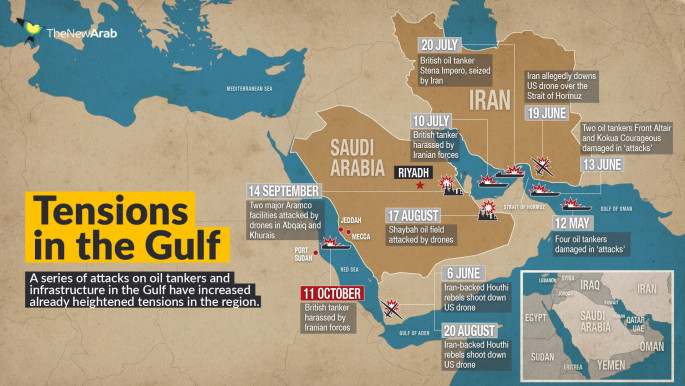UN can't confirm if Iran was behind attacks on Saudi oil infrastructure: Guterres
United Nations Secretary-General Antonio Guterres says the UN has not been able to independently corroborate that the cruise missiles and drones used in attacks earlier this year on an airport and oil facilities in Saudi Arabia “are of Iranian origin.”
The UN chief said in a report to the council obtained Friday by The Associated Press that the UN also can’t confirm that the missiles and drones were transferred from Iran “in a manner inconsistent” with the Security Council resolution that endorsed the 2015 nuclear deal between Iran and six key countries.
The United States has blamed Iran for the attacks. The Saudis said the missiles and drones were Iranian but stopped short of accusing Iran of firing them.
The UN chief said the UN examined debris from the weapon systems used in the attacks and is still collecting and analysing additional information and trying to establish the supply chain. He said he will report on its further findings “in due course, as appropriate.”
The report also includes allegations from the United States, Israel, France, Germany and the United Kingdom that Iran carried out ballistic missile-related activities that go against the resolution’s call on Tehran not to undertake any activity related to nuclear-capable ballistic missiles. It also includes Iran’s denial of all allegations and statement that none of its missiles are “designed to be capable of delivering nuclear weapons.”
Guterres made no assessment of the allegations and the denials.
The Security Council is scheduled to receive an open briefing on the report on December 19.
On the Saudi attacks, Guterres said UN experts were able to examine debris recovered by the Saudis from a June 12 attack on the Abha international airport in the southwest, from attacks on Saudi Aramco oil facilities in Abqaiq and Khurais on September 14, from a second attack on the Abha airport in August, and an attack on another oil facility in Afif in May.
Yemen's Iranian-backed Houthi rebels claimed responsibility for the Aramco drone attack on the world's largest crude oil processing plant in Saudi Arabia at Abqaiq that dramatically cut into global oil supplies. The US accused Iran of being behind the assault, while Saudi Arabia said "Iranian weaponry" was used. Iran denied its weapons were involved.
Guterres said UN officials were informed that 18 drones were used in the attack on Abqaiq, four cruise missiles in the attack on Khurais, and three cruise missiles fell short of their target, “for a total of 25 weapons systems.” The UN confirmed these numbers and said they were “inconsistent with the statements made by the Houthis,” he said.
As for the cruise missiles, the secretary-general said UN officials observed that a similar type of cruise missile was used in the Abha airport attack and the Khurais attack. He said they have similar design characteristics and configuration “to the mock-up of the Quds cruise missile that the Houthis displayed on July 7, 2019.”
In relation to the drones, Guterres said UN officials “observed that a similar type of delta wing type unmanned aerial vehicle was also used in both the attacks on the oil facility in Afif and the Saudi Aramco oil facility in Abqaiq.”
The UN experts noted “that the Houthis have not shown to be in possession, nor been assessed to be in possession, of such a delta wing unammed aerial vehicle,” which was equipped with a “Model V9” vertical gyroscope, he said.
Guterres noted that he previously reported that a drone recovered in Afghanistan in 2016 was equipped with the same gyroscope, whose manufacturer “is yet to be determined.”
On the UN travel ban, Guterres said according to Iraqi media reports Iranian Gen. Qassim Soleimani, head of the Revolutionary Guard’s foreign wing, or Quds Force, traveled a number of times to Baghdad in October, which would be a violation of sanctions against him. The secretary-general said the UN has sought clarification from Iraq.
The secretary-general expressed regret that the United States withdrew from the 2015 nuclear deal and reimposed all its national sanctions that had been lifted in May 2018. He also expressed regret at Iran's recent steps reducing its nuclear commitments.
“It is important that the Islamic Republic of Iran reverse all these measures, and refrain from taking further steps to reduce its agreed commitments," Guterres said.
Follow us on Twitter and Instagram to stay connected



